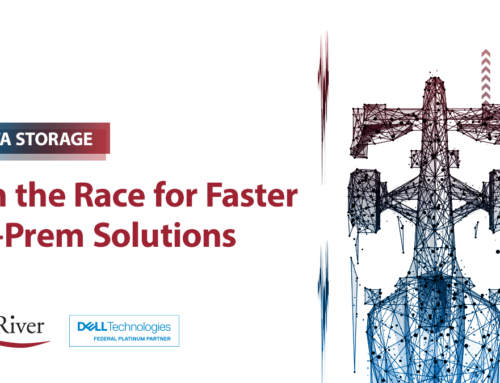
4 Things That Will Define Government Data Storage in 2023 and Beyond
Government IT security is lagging behind the private sector. In Belgium, researchers showed they could hack a U.S. government algorithm in under an hour. But that doesn’t mean it’s all woe. Significant initiatives are currently in design to improve and shore up government data storage.
Let’s look at a few things that will define (and continue to define) government data storage in 2023 and beyond.
Cloud storage
The government has been moving toward cloud storage for the last half of the decade after a brief era of skepticism and privacy concerns. But major cloud storage providers operate internationally, whereas government data has to remain within the country, introducing an additional layer of complexity for cloud service providers and cloud solution deployments.
Hybrid data storage
Government entities can create private and federated data storage solutions where appropriate and beneficial. Federated data storage also allows governments to store data in multiple locations, making it easier to maintain control over the data and improve access. The use of private networks can provide cloud-like solutions without the expanded attack surface.
Increased data security compliance
Both government entities and federal contractors need to ensure their systems are compliant with all relevant data security regulations. This includes ensuring that their IT systems are up to date with security patches and other required measures. It also means understanding what data can and cannot be stored, as well as ensuring that the right security measures are in place to protect the data.
Data security compliance is always changing. Organizations need to not only improve their data security compliance but also set processes in place so they can easily increase their compliance levels and fully control their data.
Data access control

In 2023, government organizations will continue moving toward zero-trust and least-privilege systems. Government entities must ensure that they have an effective way of controlling who has access to data. Access control systems must be implemented to ensure only authorized personnel can access restricted data. This will include using multi-factor authentication, encryption and biometrics for added security.
Data access control adds friction for users. When users can’t get the data they need at the time they need it, they can go rogue with shadow IT. Consequently, good data access control systems require a deeper understanding of the worker experience. The easier data access control is to manage, the more likely it is to remain strong.
Conclusions for government data storage in 2023
Data storage for government entities is likely to evolve significantly in the coming years. Standards are becoming stricter, but tools are also improving.
As data privacy and security become more important, organizations must be mindful of their data management and control processes so that only authorized personnel can access sensitive information. New regulations and standards must also be adhered to, while better encryption techniques should be used when storing data. Finally, organizations should also be mindful of their data archiving and deletion processes, so they are properly managing the life cycle of their data.
It’s always easier with a partner, whether managing government data storage or deploying something like Dell PowerScale, the world’s most flexible scale-out NAS solution. At Red River, we can help your organization maintain compliance with swiftly changing regulations while also delivering the security your employees, vendors and users need. Contact us today to find out more.
FAQs
Does the government have data centers?
Yes, the government has multiple data centers around the world. These are used to store sensitive information and ensure it is properly protected.
What kind of encryption should be used for government data storage?
Government data should use strong encryption techniques such as AES 256-bit encryption or higher, but these techniques are changing as the nature of cryptography changes.
Where does the US government store data?
The US government stores data at various facilities, including its data centers and third-party providers. The exact locations of these facilities are kept confidential for security reasons. However, all US government data is stored to exacting standards that are constantly updated.

written by
Corrin Jones
Corrin Jones is the Director of Digital Demand Generation. With over ten years of experience, she specializes in creating content and executing campaigns to drive growth and revenue. Connect with Corrin on LinkedIn.




